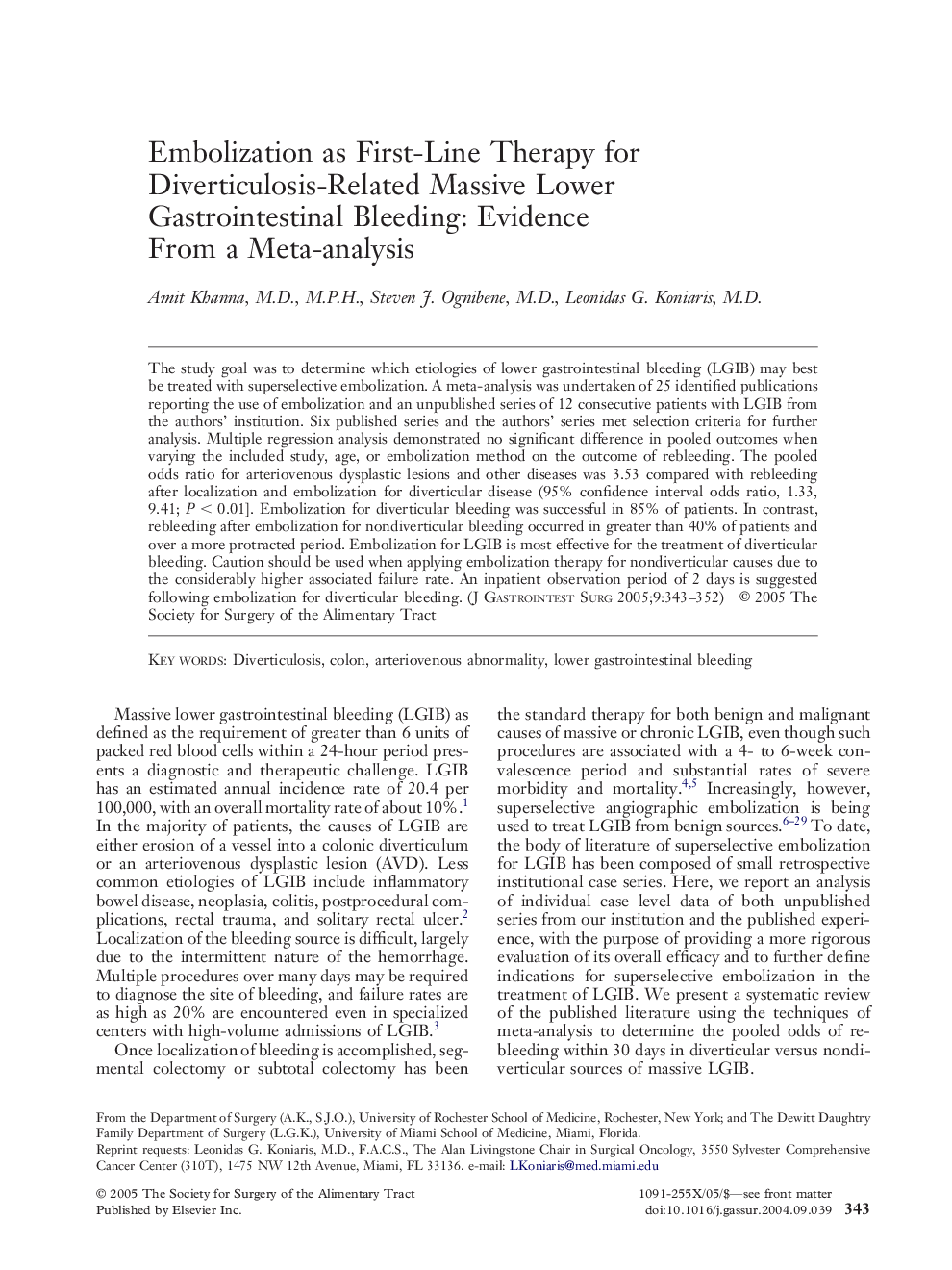| کد مقاله | کد نشریه | سال انتشار | مقاله انگلیسی | نسخه تمام متن |
|---|---|---|---|---|
| 9401498 | 1288265 | 2005 | 10 صفحه PDF | دانلود رایگان |
عنوان انگلیسی مقاله ISI
Embolization as First-Line Therapy for Diverticulosis-Related Massive Lower Gastrointestinal Bleeding: Evidence From a Meta-analysis
دانلود مقاله + سفارش ترجمه
دانلود مقاله ISI انگلیسی
رایگان برای ایرانیان
کلمات کلیدی
موضوعات مرتبط
علوم پزشکی و سلامت
پزشکی و دندانپزشکی
عمل جراحی
پیش نمایش صفحه اول مقاله

چکیده انگلیسی
The study goal was to determine which etiologies of lower gastrointestinal bleeding (LGIB) may best be treated with superselective embolization. A meta-analysis was undertaken of 25 identified publications reporting the use of embolization and an unpublished series of 12 consecutive patients with LGIB from the authors' institution. Six published series and the authors' series met selection criteria for further analysis. Multiple regression analysis demonstrated no significant difference in pooled outcomes when varying the included study, age, or embolization method on the outcome of rebleeding. The pooled odds ratio for arteriovenous dysplastic lesions and other diseases was 3.53 compared with rebleeding after localization and embolization for diverticular disease (95% confidence interval odds ratio, 1.33, 9.41; P < 0.01]. Embolization for diverticular bleeding was successful in 85% of patients. In contrast, rebleeding after embolization for nondiverticular bleeding occurred in greater than 40% of patients and over a more protracted period. Embolization for LGIB is most effective for the treatment of diverticular bleeding. Caution should be used when applying embolization therapy for nondiverticular causes due to the considerably higher associated failure rate. An inpatient observation period of 2 days is suggested following embolization for diverticular bleeding.
ناشر
Database: Elsevier - ScienceDirect (ساینس دایرکت)
Journal: Journal of Gastrointestinal Surgery - Volume 9, Issue 3, 1 March 2005, Pages 343-352
Journal: Journal of Gastrointestinal Surgery - Volume 9, Issue 3, 1 March 2005, Pages 343-352
نویسندگان
Amit M.D., M.P.H., Steven J. M.D., Leonidas G. M.D.,